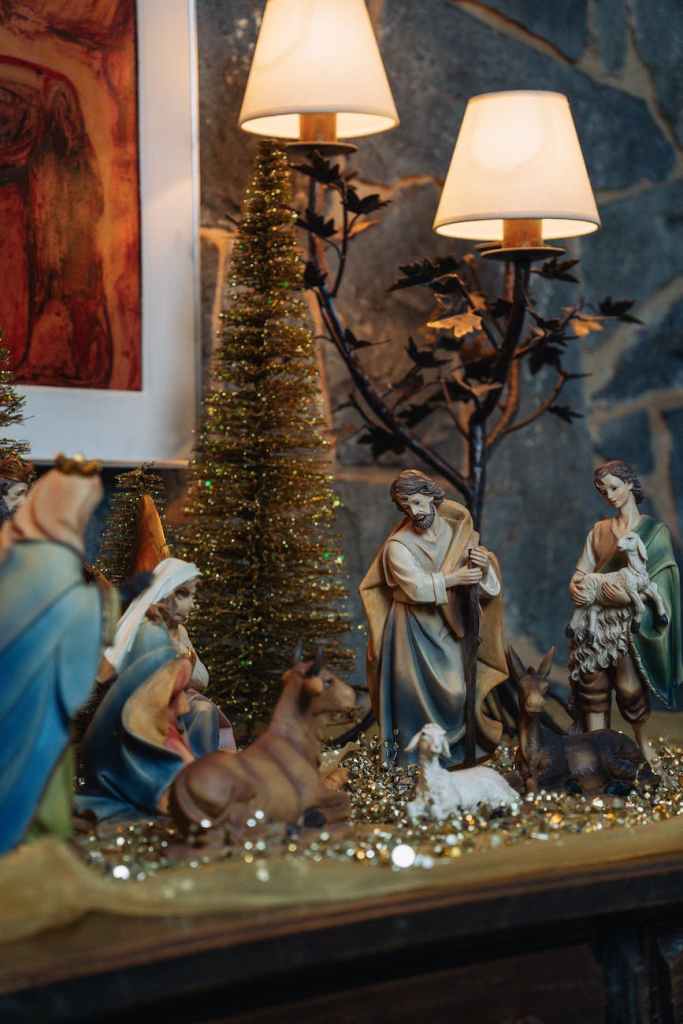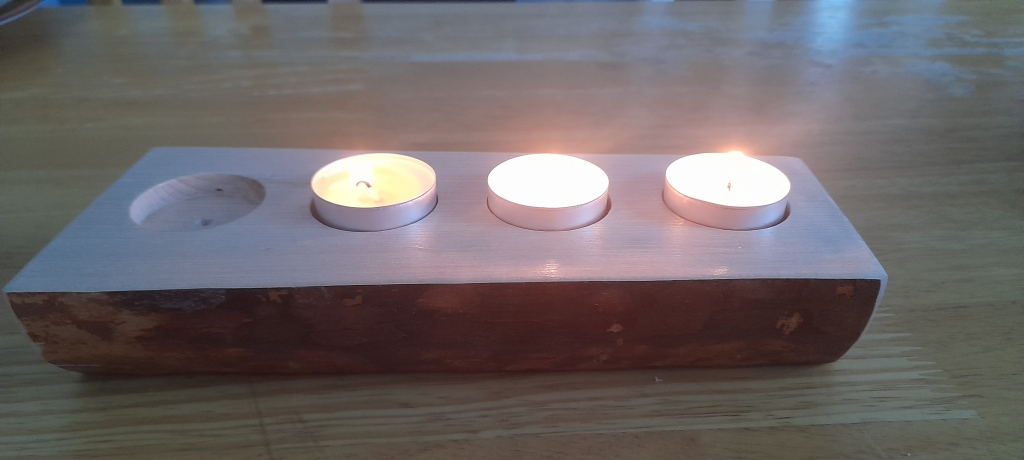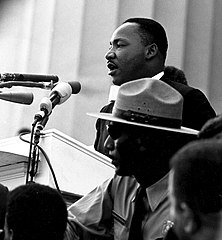There doesn’t seem to be a lot of joy in many parts of the world. There are too many wars and too much death and destruction. The Christian says God is love and his Church therefore ought to show love to others. Not only this Advent but everyday of the year. Unfortunately, selfish people get into power and make decisions based on greed no matter what the consequences. On the news we see:

- Buildings and homes bombed including hospitals and schools.
- Children maimed or dead.
- Families wiped out.
- People made homeless.
- Et al
Joy as an emotion can be fleeting. For these people in the middle of war where can happiness come from? There is an answer to this question but before we move into this area perhaps we should begin at the start:
What does Joy mean to you?
The third Week of Advent is about joy. Before we look at what the Bible says let us find a definition from a common English dictionary:
(These ideas were taken from merriam-webster.com)
joy
“The emotion evoked by well-being, success, or good fortune or by the prospect of possessing what one desires:
- delight
- the expression or exhibition of such emotion: gaiety
- a state of happiness or felicity: bliss
- a source or cause of delight
intransitive verb
- to experience great pleasure or delight: rejoice
transitive verb
- archaic: gladden.
- archaic: enjoy.
Synonyms
Noun: beatitude, blessedness, bliss, blissfulness, felicity, gladness, happiness, warm, fuzzies.
Verb: Crow, delight, exuberate, exult, glory, jubilate, kvell, rejoice, triumph.”
(from: merriam-webster.com/dictionary/joy)
Scenario of Joy
The wife was watching television at home and all of a sudden, she realized it was time to go to hospital to have a baby. The husband is at work 30km away, so an ambulance came to pick her up. The mum talked to her neighbour who was also her best friend and was asked to take care of the children because obviously she couldn’t make it to the school. Her husband goes directly to the prenatal ward and gets there just in time within half an hour the baby comes into the world and there is happiness and joy in the air.
In this joy we see an emotion at work, and it will last for a while, but it may be that when that child has grown up and become a teenager, he/she may rebel against the parents, take drugs, go stealing and end up in a gang fight and bring much sorrow to the parents.
Joy as an emotion is fleeting but perhaps there is a deeper joy that touches the soul, and it becomes ever present no matter what sufferings might be around the corner. The question: Where can we start to answer such a question?
My own opinion is to think about what people in the world have said about joy over thousands of years from the various continents. This discussion is still general, but it will show that in human culture and religion around the world there is a hearkening after a joy that is eternal and infinite.
In this section now then we are going to look at what other religions say about joy. I haven’t written these two pages because sometimes I think they can say it better than I can. The quotations are from (WORLD SCRIPTURE; A Comparative Anthology of Sacred Texts; A PROJECT OF THE INTERNATIONAL RELIGIOUS FOUNDATION; pages 246-247)
SOME CONCEPTION OF HEAVEN AND HELL is found universally among the religions of the world. Descriptions of these abodes are often full of graphic and fanciful imagery, conveying in metaphor a reality that can hardly be part of the ordinary experience of mortals. Are these realms objectively real? The scriptures are unanimous in affirming they are. Yet they do not have any physical location: “up” or “down” is a matter of spiritual geography, not of astronomy or geology. The View found in some texts, that Heaven or hell is derived from one’s state of mind,1 does not make it any less real. For the attitudes and desires of people’s hearts, which may be hidden by the external features of mortal life, are the equivalent of material reality in the realms of spirit.
A number of the Hindu, Buddhist, and Taoist passages speak of Yama, the Indic god of the dead. Yama is not comparable to the devil or Satan who, in Christian belief, is the author of evil. In the Vedas, he presides over the bright realms and is the object of offerings and supplications for the benefit of the departed. As the lord of hell in Buddhism, his acts are strictly in accordance with divine law, meting out punishments according to people’s karma, and in one Taoist text reprinted here he even gives an object lesson to turn people away from evil.
Some ambiguity plagues the descriptions of Heaven and hell in the scriptures of Judaism, Christianity, and Islam, which can be interpreted either to describe the state of the soul upon death or what will be after the future Resurrection. The qur’anic passages collected here whichdescribe the opening of Paradise and hell are a few of many which refer to the Last Judgment.
Most Muslims, therefore, regard the dead to be sleeping in the grave awaiting that momentous event. Yet other passages, such as the hadith describing Muhammad’s Night Journey,Z point to the present reality of Heaven as the dwelling place for the souls of the righteous. The biblical vision of Heaven from the Revelation and the passage from the same book about the lake of fire are visions of a future recompense after the tribulations of the Last Judgment. Those Christians who hold to a literal interpretation of these verses concur with their Muslim brothers and sisters that the souls of the dead are asleep in the grave, awaiting the future opening of Heaven and hell. But another strand of the Christian tradition, supported by biblical descriptions of the Sheol in Job 3.17—19, the heavenly Jerusalem in Hebrews 12.22—24, and the story of Lazarus and the rich man in Luke 16.193 1, teaches that upon death each person immediately enters his appointed place in Heaven or hell. The visions in Revelation are often interpreted in this way, and have spawned such classic descriptions as Dante’s Divine Comedy. The concept of the World to Come in Jewish writings is similarly ambiguous: the World to Come may be a present heaven or describe a future redemption on earth.
My Reflection on this
The major religions of the world including Buddhism have a place for permanent joy that will last forever. This means that in any human experience there is a place for an infinite joy and infinite bliss.
We can now continue on the next page (ibid):
“The world’s scriptures describe Heaven as a place of rest, or as an exalted spiritual state, full of divine splendor and communion with the Absolute. There are also descriptions using more graphic and materialistic imagery: gardens of delights, with riches and pleasures abounding. A number of texts describe it as a place of fellowship with the spirits of the departed or a fellowship of saints.
We conclude with visions or tours of Heaven: the Buddhist description of the Pure Land, the vision of throngs surrounding the divine throne in the Book of Revelation, and Muhammad’s
Night Journey.”
And those Foremost [in faith] will be Foremost
[in the Hereafter].
These will be those nearest to God;
In Gardens of Bliss;
A number of people from those of old,
And a few from those of later times.
They will be on thrones encrusted, reclining
on them, facing each other.
Round about them will serve youths of perpetual freshness,
With goblets, shining beakers, and cups filled
out of clear—flowing fountains;
No after—ache will they receive there from, nor
will they suffer intoxication;
And with fruits, any that they may select,
And the flesh of fowls, any that they may
desire.
And there will be companions with beautiful,
big and lustrous eyes,
Like unto pearls well—guarded:
A reward for the deeds of their past life.
No frivolity will they hear therein, nor any
taint of ill,
Only the saying “Peace! Peace!”
Islam. Qur’an 56.10—27
Chuang Tzu said, “Were I to prevail upon God
to allow your body to be born again, and your
bones and flesh to be renewed, so that you
could return to your parents, to your wife, and
to the friends of your youth, would you be willing?”
At this, the skull opened its eyes wide and
knitted its brows and said, “How should I cast
aside happiness greater than that of a king, and
mingle once again in the toils and troubles of
mortality?”
Taoism. Chuang Tzu 18
Make me immortal in the realm
where the son of Vivasvat [Yama] reigns,
where lies heaven’s secret shrine, where
are those waters that are ever young.
For Indra, flow thou on, Indu!
Make me immortal in that realm
where movement is accordant to wish,
in the third region, the third heaven of heavens,
where the worlds are resplendent.
For Indra, flow thou on, Indu!
Make me immortal in that realm
where all wishes and longings go,
where spreads the Radiant One’s region,
where holy bliss is, and happiness.
For Indra, flow thou on, Indu!
Make me immortal in that realm
where beatitude and joy and cheer
and transports of delight abound,
where the highest desires have been filled.
For Indra, flow thou on, lndu!
Hinduism. Rig Veda 9.113.8—11
In the World of religions including Christianity, Judaism, Islam, Taoism, there is room to discuss permanent joy. In these scenarios joy becomes an ultimate question that cannot be reached in our time and space without the Infinite (God) reaching out to us. When we talk about finitude we mean our history and our time. To cross this boundary of the Now and History there has to be a first move from the Eternal. The concept of eternal joy however has moved great people to do great deeds.
Reflection
Martin Luther King once said,” “So even though we face difficulties of today and tomorrow, I still have a dream.” (From inspirekindness.com/blog/martin-luther-king-jr-kindness-quotes)
Joy as an Ultimate Question a question that cannot be answered today can be a hope driver.
As Bruce Lee once said, “A goal is not always meant to be reached, it often serves simply as something to aim at.” (From sofoarchon.com/31-life-changing-bruce-lee-quotes-happiness-love-god-truth-failure-death/)
So then my friends in the end we come to the conclusion that in the Faith life, joy is not only an ultimate question rather it is also an Ultimate Path that we must walk.
Advent and the Ultimate Joy Question

Joy therefore is not only an ultimate question but part of our being, in every human who has ever lived, desires a lasting joy. Theist, atheist, agnostic no matter who we are, we cry out for joy and in a lot of situations we look in the wrong places.
For me Christmas is the ultimate answer to the ultimate question of joy. As Paul one wrote in the Book of Philippians:
Have this attitude in yourselves, which was also in Christ Jesus, 6 who, although He existed in the form of God, did not regard equality with God a thing to be grasped, 7 but emptied Himself, taking the form of a bond-servant, and being made in the likeness of men. 8 Being found in appearance as a man, He humbled Himself by becoming obedient to the point of death, even death on a cross. 9 For this reason also, God highly exalted Him, and bestowed on Him the name, which is above every name, 10 so that at the name of Jesus EVERY KNEE WILL BOW, of those who are in heaven and on earth and under the earth, 11 and that every tongue will confess that Jesus Christ is Lord, to the glory of God the Father. Philippians 2:5-11
So essentially Jesus as the Eternal Logos (God the Son) became a human being this in itself is a mystery that we will never fathom but it fills the Christian with Joy. This unspeakable joy is guaranteed by the seal of the Holy Spirit for the Church:
“In Him (In Christ), you also, after listening to the message of truth, the gospel of your salvation—having also believed, you were sealed in Him with the Holy Spirit of promise, Ephesians 1:13”
A true understanding of the Beatitudes of the teachings of Christ and the life, death and resurrection of Christ is the ultimate answer to the joy question. So then in that case meditating on aspects of the Christmas story can therefore deepen our joy as we come closer to our master in remembrance of His goal for our lives that we can be richly blessed with heavenly gifts that this world cannot touch.
Within the Birth Narrative of our Lord Luke tells us about the experience of some Shepherds and the Angel:
“In the same region there were some shepherds staying out in the fields and keeping watch over their flock by night. 9 And an angel of the Lord suddenly stood before them, and the glory of the Lord shone around them; and they were terribly frightened. 10 But the angel said to them, “Do not be afraid; for behold, I bring you good news of great joy which will be for all the people; 11 for today in the city of David there has been born for you a Savior, who is Christ the Lord. 12 This will be a sign for you: you will find a baby wrapped in cloths and lying in a manger.” 13 And suddenly there appeared with the angel a multitude of the heavenly host praising God and saying,
14 “Glory to God in the highest,
And on earth peace among men with whom He is pleased.”” Luke 2:8-14
The angel declares that a Saviour would be born. Our Lord and Master indeed throughout his life was working for us and for our salvation. The Hebrew form of Jesus, Yeshuah is made of the shortened personal name of God (from the tetragrammaton) + saves. Its meaning the Lord who saves. The question had been; What does the Messiah save us from?
- Military Occupation of the Romans or another superpower
- Saving us by making our relationship with God right and hence eternal salvation.
The Messiah did not come to wage war and set up a kingdom in Palestine Israel. It is not a political and militaristic takeover. The messiah came into the world so that we could be brought into a right relationship with our Trinitarian God in order to give us lasting joy, a joy that in the present age cannot be attained but will take place in its fullness in the Eschaton.



